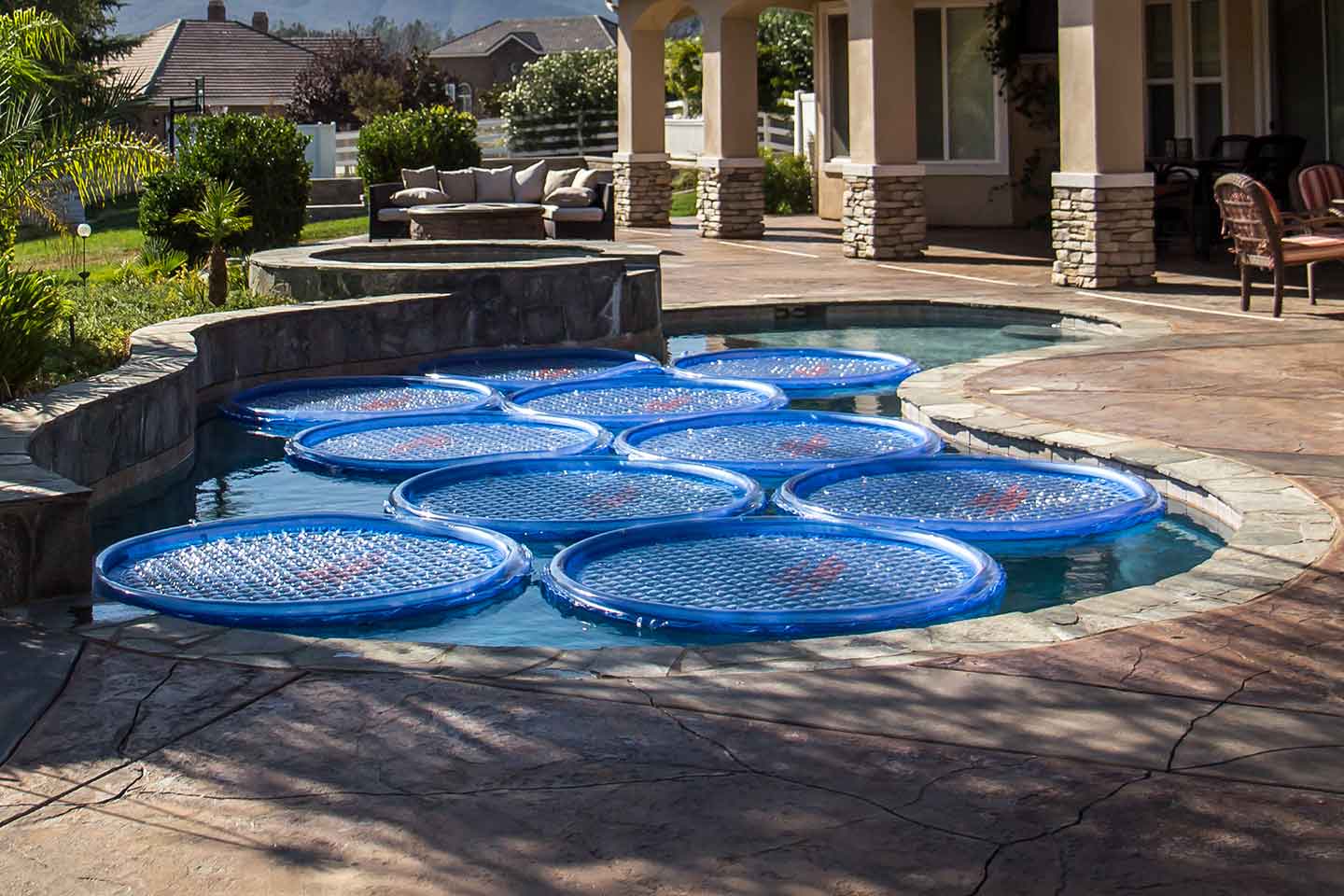Heating pool water is essential for extending the swimming season, enhancing comfort, and ensuring a pleasant swimming experience. With various options available, choosing the best equipment for heating pool water depends on factors like pool size, climate, and budget. This article will explore the best equipment for heating pool water, their basic functioning, and their capacity in terms of water volume.
Best equipment for heating pool water
When it comes to heating pool water, several types of equipment stand out for their efficiency and effectiveness. The most common options include heat pumps, gas heaters, solar heaters, and electric resistance heaters. Each has its advantages and is suitable for different scenarios.
Heat pumps
Heat pumps are an energy-efficient and environmentally friendly option for heating pool water. They operate by extracting heat from the air and transferring it to the pool water. Here’s how they work:
- Functioning: Heat pumps use a refrigeration cycle to capture heat from the surrounding air. This heat is then transferred to the pool water through a heat exchanger. The process involves a compressor, condenser, and evaporator, which work together to move heat efficiently.
- Capacity: Heat pumps are ideal for maintaining a consistent water temperature and can handle large volumes of water. They are best suited for moderate climates where the ambient air temperature does not drop too low.
Gas heaters
Gas heaters are known for their ability to heat pool water quickly, making them a popular choice for those who need rapid heating. They run on natural gas or propane and are suitable for pools of all sizes.
- Functioning: Gas heaters use a burner to ignite the gas, producing heat that is transferred to the pool water through a heat exchanger. The heated water is then circulated back into the pool.
- Capacity: Gas heaters are highly effective in heating large volumes of water quickly, making them ideal for larger pools or for use in colder climates where quick heating is required.
Solar heaters
Solar heaters are a sustainable and cost-effective method for heating pool water, relying on solar energy to raise the water temperature. They are an excellent choice for environmentally conscious pool owners.
- Functioning: Solar heaters use solar collectors, which are typically installed on the roof or a nearby area with good sun exposure. Pool water is pumped through these collectors, where it is heated by the sun before being returned to the pool.
- Capacity: The efficiency of solar heaters depends on the amount of sunlight available and the size of the solar collector array. They can heat large volumes of water, but the heating rate may vary depending on weather conditions.
Electric resistance heaters
Electric resistance heaters are less common but can be effective for smaller pools or spas. They use electrical energy to generate heat directly, making them a straightforward option for heating pool water.
- Functioning: Electric resistance heaters work by passing an electric current through a resistive element, which generates heat. This heat is then transferred to the pool water as it passes through the heater.
- Capacity: Electric resistance heaters are best suited for small to medium-sized pools or spas, as they can be less energy-efficient and more costly to operate for larger volumes of water.

Factors to consider when choosing pool heating equipment
When selecting equipment for heating pool water, consider the following factors to ensure you choose the best option for your needs:
- Pool size and volume: The size and volume of your pool will significantly impact the type of heater you need. Larger pools require more powerful heaters that can handle greater volumes of water efficiently.
- Climate and weather: The local climate and weather conditions play a crucial role in determining the most suitable heating method. For instance, solar heaters are most effective in sunny regions, while gas heaters are better for colder climates.
- Energy efficiency: Consider the energy efficiency of the heating equipment. Heat pumps and solar heaters are generally more energy-efficient than gas or electric resistance heaters, leading to lower operating costs.
- Installation and maintenance: Evaluate the installation requirements and maintenance needs of each type of heater. Some systems, like solar heaters, may require significant upfront installation, while others, like gas heaters, may need regular maintenance to ensure safe operation.
- Cost: Budget is always a critical consideration. While solar heaters have higher initial costs, they offer long-term savings on energy bills. Gas heaters, on the other hand, may have lower upfront costs but higher operational expenses.
Tips for efficiently heating pool water
To maximize the efficiency and effectiveness of your pool heating system, consider the following tips:
- Use a pool cover: A pool cover helps retain heat and reduces heat loss due to evaporation. This can significantly improve the efficiency of your heating system, regardless of the type you use.
- Regular maintenance: Keep your heating equipment well-maintained to ensure optimal performance. Regularly check for any issues and address them promptly to avoid costly repairs.
- Optimize pump operation: Run your pool pump during the warmest parts of the day to maximize the heating potential, especially when using solar heaters.
- Monitor water temperature: Use a pool thermometer to monitor the water temperature and adjust the heating system as needed. This helps prevent overheating and ensures comfortable swimming conditions.
Conclusion
Heating pool water enhances the swimming experience, extends the swimming season, and provides comfort for pool users. By understanding the different types of heating equipment—heat pumps, gas heaters, solar heaters, and electric resistance heaters—you can choose the best option for your pool’s size, climate, and budget. Proper maintenance and efficient use of the heating system will ensure that your pool remains a warm and inviting place for enjoyment year-round.
Visit: Manual water pump.

